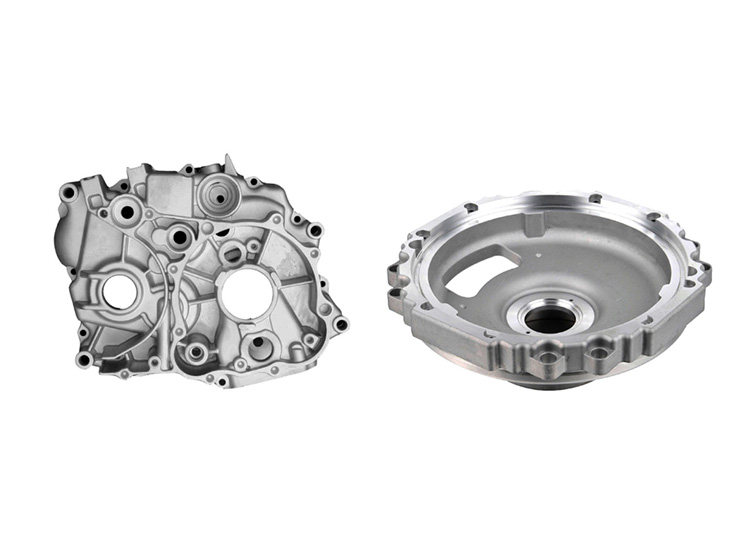An Unbiased View of Stahl Specialty Company
An Unbiased View of Stahl Specialty Company
Blog Article
Not known Details About Stahl Specialty Company
Table of ContentsThe Best Guide To Stahl Specialty CompanyStahl Specialty Company Things To Know Before You Get ThisIndicators on Stahl Specialty Company You Need To KnowStahl Specialty Company - An OverviewLittle Known Questions About Stahl Specialty Company.
There are lots of minor distinctions in between wrought and cast aluminum alloys, such as that cast alloys can contain more considerable quantities of other steels than functioned alloys. Yet one of the most notable distinction between these alloys is the manufacture process with which they will certainly most likely to deliver the last item. Other than some surface area treatments, cast alloys will exit their mold and mildew in practically the specific solid form preferred, whereas wrought alloys will certainly undergo several alterations while in their solid state.If you believe that a functioned alloy might be the finest for your task, have a look at some of our short articles that discuss even more about particular wrought alloys, such as Alloy 6061 and Alloy 6063. On the other hand, if you assume an actors alloy would certainly be better for you, you can find out more about some cast alloys in our Alloy 380 and Alloy 383 posts (coming soon).

Having the experience and sector expertise to engineer your spreadings for optimal manufacturing and high quality end results will streamline the job. Making light weight aluminum spreading needs a complicated set of procedures to attain the best outcomes. When determining on a new light weight aluminum factory to partner with, ensure they have substantial industry experience and are knowledgeable regarding all facets of the light weight aluminum spreading process: style, production, material analysis, and product screening.
The Facts About Stahl Specialty Company Uncovered
The foundry ought to additionally have a tried and tested record of delivering outstanding items that fulfill or go beyond consumer expectations. Quality control ought to also go to the top of your listing when choosing an aluminum factory. By collaborating with a certified foundry that adheres to the requirements for quality assurance, you can secure the stability of your product and guarantee it fulfills your specifications.
By picking a business who supplies services that satisfy or exceed your product needs, you can be certain that your the original source project will be completed with the utmost precision and efficiency. Particular light weight aluminum shops focus on particular kinds of manufacturing procedures or casting methods. Different components require various production methods to cast light weight aluminum, such as sand casting or die spreading.

Pass away casting is the name offered to the procedure of creating complicated metal components through use mold and mildews of the component, likewise referred to as dies. The process uses non-ferrous metals which do not consist of iron, such as aluminum, zinc and magnesium, because of the desirable residential properties of the metals such as low weight, greater conductivity, non-magnetic conductivity and resistance to rust.
Stahl Specialty Company Can Be Fun For Everyone
Die casting production is fast, making high production degrees of components very easy. It generates even more parts than any kind of various other process, with a high level of accuracy and repeatability. To find out more regarding die spreading and die spreading materials used in the process, continued reading. There are three sub-processes that fall under the category of die casting: gravity pass away spreading (or long-term mold spreading), low-pressure die casting and high-pressure die spreading.
After the purity of the alloy is checked, dies are produced. To prepare the dies for casting, it is essential that the dies are tidy, so that no deposit from previous productions remain.
The pure steel, also referred to as ingot, is included in the heating system and maintained the molten temperature of the steel, which is then moved to the injection chamber and infused right into the die. The stress is after that kept as the steel strengthens - Foundries in Missouri. Once the metal solidifies, the cooling procedure starts
The thicker the wall of the component, the longer the cooling time as a result of the amount of interior metal that likewise needs to cool. After the part is fully cooled down, the die cuts in half open and an ejection device presses the component out. Adhering to the ejection, the die is shut for the following shot cycle.
The 25-Second Trick For Stahl Specialty Company

Today, top producers make use of x-ray testing to see the whole inside of components without cutting right into them. To get to the ended up product, there are three key alloys made use of as die casting product to pick from: zinc, aluminum and magnesium.
Zinc is one of the most secondhand alloys for die spreading due to its reduced expense of raw materials. Its corrosion resistance also enables the elements to be long enduring, and it is one of the extra castable alloys due to its reduced melting factor - Aluminum Castings.
The 2-Minute Rule for Stahl Specialty Company
As mentioned, this alloy is just one of the most frequently made use of, yet manufactures will, sometimes, select aluminum over zinc as a result of aluminum's manufacturing benefits. Light weight aluminum is extremely cost-effective and one of the a lot more flexible alloys. Aluminum is used for a number of various items and industries anything from home window frames to aerospace products.
Report this page